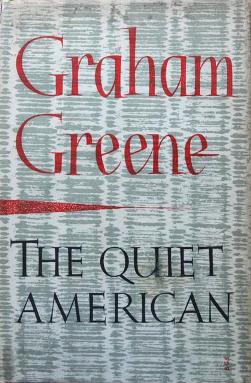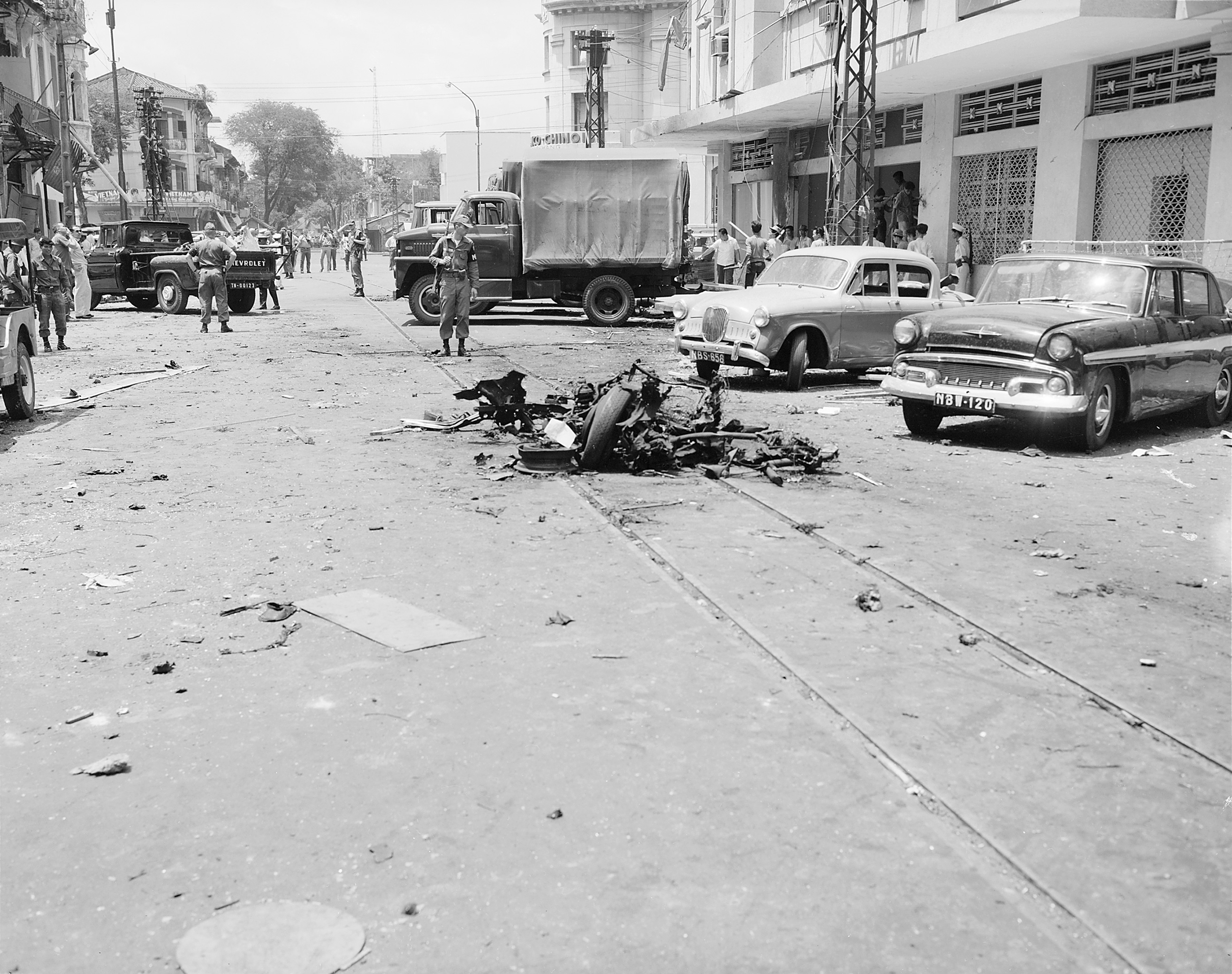Dear Misfits,
The Misfits met on June 8 at Loome Theological Books to discuss Graham Greene’s novel, The Quiet American. The Misfits have a fond appreciation for classic Russian novelists, but we agreed it was a pleasure to enjoy a short, readable novel after slogging through two months of Dostoyevsky. The summer green, the evening air, the setting sun, and a Spotted Cow or two all combined to provide the perfect setting for our meeting held in the Claret Farm gazebo. Thanks again to Misfit Chris Hagen for hosting.
Misfit Buzz began the discussion by providing some historical context for the Vietnam War. Most of us are old enough to remember the war well, and some of us served in it, but this novel takes place before the United States became deeply involved. Given that Graham Greene published the novel in 1955, it turned out to be prophetic as well. It was also interestingly noted in a sidebar that, besides the struggles against French colonialism, a certain portion of the early aggression was fueled by Communists and Buddhists coming into conflict with Vietnamese Catholics, who were well established.
The story has two main characters: Fowler – a newspaper correspondent from England, and Pyle – a CIA agent in the vanguard of US involvement. The Misfits failed to find redeeming qualities in either man. Fowler tried to use his objectivity as a reporter to rationalize his neutrality in the conflict, but it was his desire for and dependence on his girlfriend and mistress, Phuong, that bound him personally to the war. In the end he was compelled to take action, but even in doing so he tried to justify himself in such a way as to deny moral responsibility for the consequences. Pyle was described as a naïve idiot who was oblivious to reality. He was an inexperienced ideologue who felt the United States could impose democracy by teaming with the right ally to form a Third Force and gain victory by upsetting the existing balance of power. He reminded us of the many shortcomings in American foreign policy throughout the years.
The love triangle between Fowler, Pyle, and Phuong is an allegory for the war itself. Fowler represents the interests of colonial Europe. He doesn’t want to be alone in his declining years in much the same way the French sought to maintain the status quo of colonialism. Pyle is an idealist who fights the battle of Democracy versus Communism and he doesn’t care if innocent lives are lost in the process. And Phuong represents most Vietnamese in that she simply wants a live of security, peace, stability, and happiness.
Finally we wondered if the character of Fowler is in some ways Graham Greene’s alter ego. Certainly Greene’s political views are reflected in Fowler, and the opposite of those views is embodied in the antagonist Pyle. But we also suspect that some of Greene’s conversion experience was expressed in Fowler. Was there a period of time when Greene, like Pyle, didn’t believe in God? And was Fowler’s conflict with his divorced wife drawn from his own experience.
Despite the fact that the main characters are shallow, more or less unbelievable, and generally dislikeable, we really enjoyed the book. It sparked lengthy discussions about the war itself and what America could have done and what its involvement should have been.
To the Future:
For July we are returning to Flannery O'Conner and will be reading selected short stories from The Complete Stories. We will specifically read and discuss “Revelation”, “Parkers Back”, and “Judgement Day”.
For August we will read a novel that has great historical and some might say, topical interest: The Last Crusader: A Novel About Don Juan of Austria by Louis de Wohl. The novel portrays the great Christian victory at the Battle of Lepanto.
Our next two meetings will be at Loome Booksellers/Claret Farm hosted by Misfit and bookseller extraordinaire, Chris Hagen. Our meeting in July will be on July 12th and will start at 7:00 pm. If you haven't been to a Misfit Meeting Under the Gazebo at Claret Farm, you are missing a literary and distinctly male, convivial experience (as in men discussing books and drinking fine beer.
With Warm Literary Regard,
Steve Ward
Scribe to the Misfits
******************************************************
"Every person that comes into this earth ... is born sweet and full of love. A little child loves ever'body, friends, and its nature is sweetness -- until something happens. Something happens, friends, I don't need to tell people like you that can think for theirselves. As that little child gets bigger, its sweetness don't show so much, cares and troubles come to perplext it, and all its sweetness is driven inside it. Then it gets miserable and lonesome and sick, friends. It says, 'Where is all my sweetness gone? Where are all the friends that loved me?' and all the time, that little beat-up rose of its sweetness is inside, not a petal dropped."
FLANNERY O'CONNOR, Wise Blood


No comments:
Post a Comment